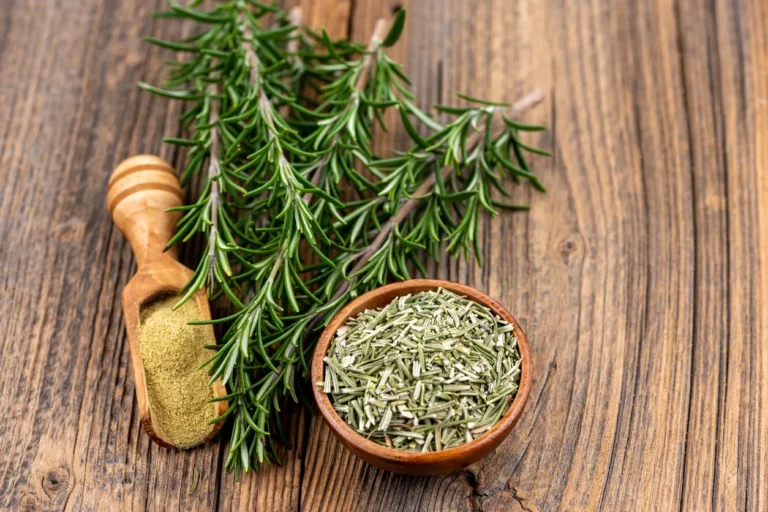Explore how herbs like Lavender, Hibiscus, and Rosemary can transform your hair care regimen. Hair care techniques emphasising plant elements rather than solid chemicals have become increasingly popular. For millennia, many civilisations have benefited from hair growth from herbs—known for their medicinal and cosmetic qualities. They may enhance smoothness and gloss, treat dandruff, and encourage hair development. There are many herbs on hand, from common culinary ingredients like rosemary and thyme to exotic ones like hibiscus and shikakai-common culinary ingredients like rosemary and thyme to exotic ones like hibiscus and shikakai, there are many herbs on hand. Herbs can help you reach your hair growth goals without turning to solid chemicals or treatments that might damage your hair over time. Uncover the top 10 herbs that promote healthy hair growth and nourish your scalp naturally.
What Causes Hair Loss or Thinning?
The many causes of hair loss and thinning include genes, medical diseases, and other health problems. Common genetic disorder androgenetic alopecia may cause men’s and women’s hairlines to recede and expand, respectively. Additionally, hair loss can be caused by medical disorders such as alopecia areata, scalp infections including ringworm, and thyroid abnormalities. Other medical disorders include chemotherapy drugs and blood thinners that might have side effects, including transient hair loss. Changes in hormones brought on by pregnancy, menopause, or different life periods might influence hair development. Moreover, vitamin deficiencies may affect the condition of hair. Everybody loses between 50 and 100 hairs daily; if you are concerned about continuous hair loss, consult a doctor to identify the cause and look at treatment possibilities.
10 Best Herbs for Hair Growth
Hibiscus
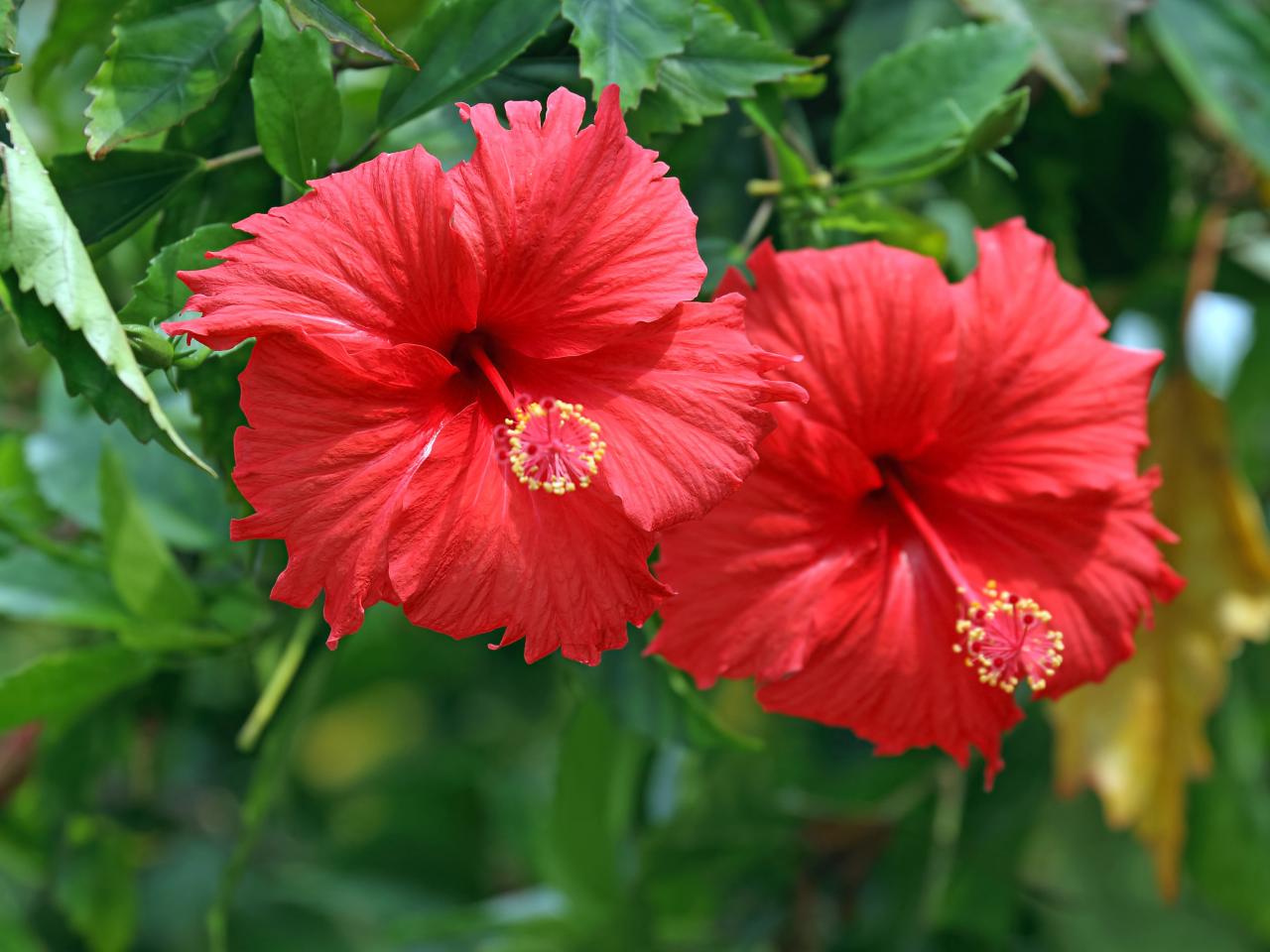
Hibiscus is an excellent remedy for thickening and volumising hair since it nourishes the scalp and strengthens hair follicles with its antioxidants, vitamins, and minerals. It encourages the regeneration of dormant hair follicles and bald spots by helping to produce keratin. Hibiscus prevents hair loss by protecting the scalp from oxidative stress. You may prevent more hair loss and grow thicker, fuller hair by using it consistently. Plus, it prevents split ends, dandruff, and excessive moisture loss, all contributing to healthy hair. The most effective method of using hibiscus for hair is to apply a mixture of infusions of flowers in a carrier oil (such as coconut, avocado, or olive) to the scalp and hair. For best results, try making a hibiscus flower and yoghurt hair mask once a week. Before applying the cream to your whole scalp, do a small area test to see if your skin is sensitive.
Rosemary

Traditional medicine uses rosemary oil to halt hair loss and promote new growth. Hair follicles are protected from hypoxia by the essential oil of this plant, which increases blood flow. The increased circulation to the scalp, which energises the tissues and nerves there, may promote the creation of new hair. Some people find that rosemary oil helps with dandruff and inflamed scalps due to its anti-inflammatory properties. In addition to promoting a healthy scalp, it decreases oedema. Since stress is believed to hasten age, rosemary can help stave against grey hair. Research conducted in 2015 found that rosemary oil equally promoted hair regeneration for androgenic alopecia and minoxidil. Another study found that when testosterone was the culprit in hair loss, rosemary leaf extract made things worse. Before washing it off with shampoo or conditioner, combine a few drops of rosemary oil with a carrier oil and apply it to your scalp. Alternatively, you might whip up a DIY hair mask using several beneficial oils. If you have susceptible skin, applying rosemary oil to a little section of your scalp first is best.
Ginseng
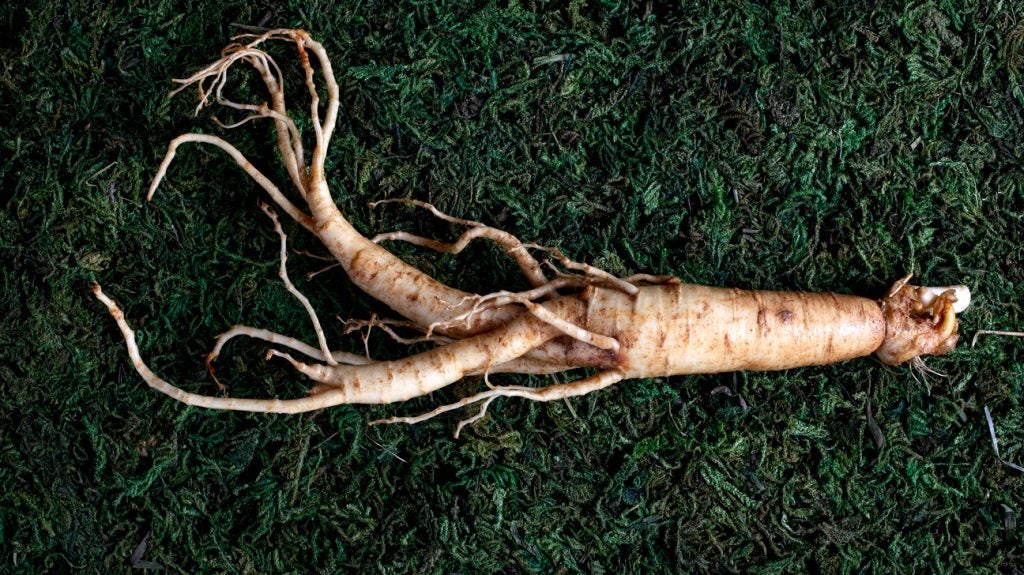
The many health benefits of ginseng (also called “red ginseng”) include the possibility that it may stimulate hair growth. The increased blood flow to the scalp nourishes the hair follicles and may even stop hair loss. Ginseng may help reduce stress, which is good for your mental health and hair. There are two types of ginseng: one from Asia, frequently called “red ginseng,” and another from North America, Panax quinquefolius. There are a few ways to include ginseng into your hair and scalp care routine: purchasing ginseng-infused products, taking ginseng pills, or creating oil hair masks and treatments. You should consult a medical professional before including ginseng in your hair care regimen since its benefits may vary from one individual to another.
Nettle
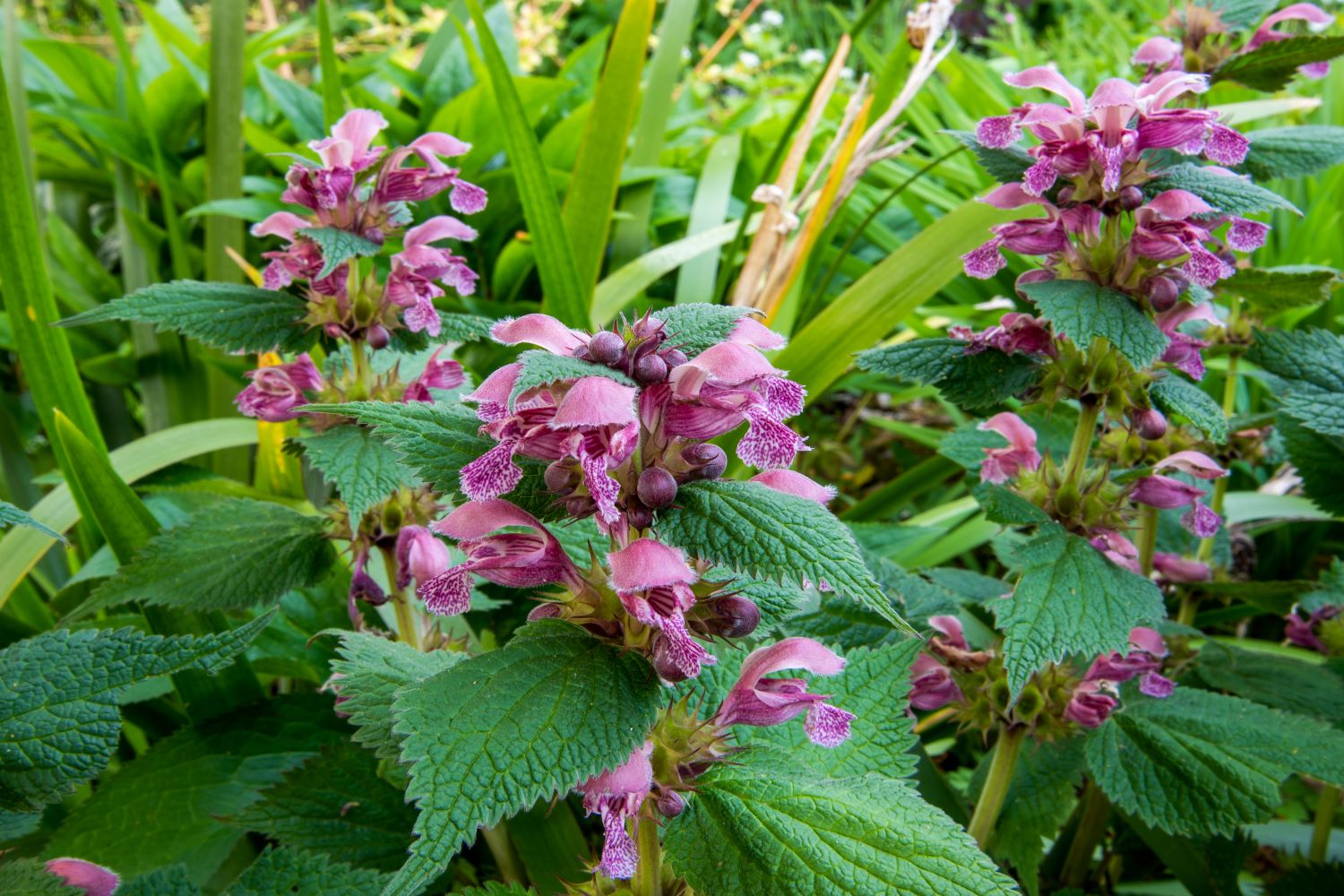
Nettle, often known as stinging nettle or Urtica dioica, has a long history of folk and traditional medicine use. This plant’s anti-inflammatory properties come from bioactive compounds found in its stalks, roots, and leaves; these qualities promote healthy hair growth, strengthen hair, and alleviate inflammation on the scalp. Nutritional elements in nettle, such as iron, silica, and vitamins A, C, and K, nourish hair follicles and may promote hair growth. This cream helps maintain a healthy scalp by acting as an antimicrobial. You may get nettle hair advantages by applying nettle-infused oil or tea rinses on your hair once a week. However, before you use nettle, consult your doctor because of the risk of drug interactions. Avoid nettle when you’re pregnant since it might cause contractions.
Bhringraj
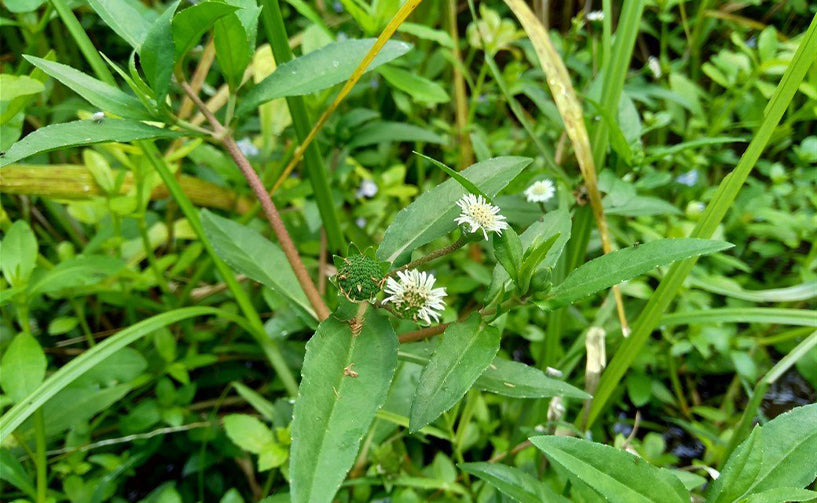
An Ayurvedic mainstay for healthy hair, the Indian herb Bhringraj (also known as Eclipta alba or Eclipta prostrata) promotes fuller locks, less thinning hair, and defence against hair loss and greying. Scientific studies on male albino rats found that bhringraj oil significantly boosted the number of hair follicles and prevented hair loss better than minoxidil. Bhringraj oil’s vitamin E content protects hair from free radicals, which are known to inhibit hair growth. Its antibacterial and antifungal properties also help with dandruff reduction. Its anti-inflammatory properties have the potential to soothe inflamed scalps and encourage the development of healthy scalp tissue. Bhringraj oil can potentially prevent or at least postpone the start of grey hair due to its darkening properties. It is rich in many healthy nutrients, including vitamin D, calcium, iron, and magnesium. According to Ayurvedic principles, Bhringraj has the potential to alleviate stress, promote restful sleep, and prevent urinary tract infections. For some, it helps cleanse the liver. Seek expert guidance on delicately applying bhringraj oil to your scalp and hair before incorporating it into your hair care routine. Wait half an hour before washing.
Lavender oil

Using lavender oil to promote hair growth has several benefits, including thicker, longer-lasting hair. In 2016, scientists found that mice developed more hair after a week of being administered lavender oil. Humans benefit from its enhanced effectiveness upon skin penetration. Thanks to its antimicrobial properties, lavender oil soothes itchy scalp, dandruff, and infections and prevents germs and fungi growth. A 2011 study found that lavender oil aromatherapy might protect against or eliminate head lice. Although following prescribed treatment plans is essential, a tea tree and lavender oil blend works better. Many people feel calmer after breathing in lavender oil because of its calming effect on the central nervous system. If you’re prone to skin sensitivity, doing a patch test before rubbing lavender oil into your scalp is best.
Peppermint

There is some evidence that peppermint oil may promote hair growth. Menthol, the active component, expands blood vessels via its vasodilatory action. As a result, the scalp may be receiving an increased blood supply. The nutrients hair follicles require to thrive will reach them with better blood flow. Peppermint oil helps maintain a healthy scalp and may relieve dryness and irritation due to its antimicrobial properties. The menthol in peppermint oil not only makes it a refreshing fragrant option, but it also tingles the scalp and skin. Evidence from a 2014 study on mice suggests that peppermint essential oil may speed up and thicken hair growth while improving blood flow to follicles lacking in nutrients. More research is needed before we can say how it influences human hair formation. Gently massage the scalp with peppermint oil and your hair wash or conditioner before washing your hair.
Amla

Amla, or Indian gooseberry, is an excellent vitamin C source for collagen formation and good hair growth. Thanks to its antioxidant characteristics, it prevents oxidative stress, which harms hair health. The phytonutrients in amla promote increased blood flow to the scalp, which in turn supports healthy hair follicles. Reducing the rate of premature greying may help slow down the ageing process. A change in your hair’s thickness, colour, and lustre may become apparent with the consistent use of amla. Amla reduces dandruff, soothes irritated scalps, and stops hair loss. Improved digestion, glowing skin, and iron absorption are all benefits. To use amla oil on hair, massage it into the scalp. The outcome is an increase in blood flow, which stimulates hair follicles. Improving your general health might be as simple as drinking fresher amla juice. Persevere and amla are excellent complements to your current hair care regimen. Eat all the fruit you can get your hands on right now!
Gotu Kola

Scientifically known as Centella Asiatica, Gotu Kola has a rich medicinal use history. The combination of its therapeutic components, including its medicinal triterpenoids, has reinforced hair follicles. These compounds may help strengthen veins and preserve connective tissue, both of which are important for the health of hair follicles. Because it relaxes the blood vessels in the scalp, Gotu Kola improves blood flow to the hair follicles, allowing more nutrients and oxygen to reach the hair. The current research suggests that Gotu Kola may help reduce stress, which benefits hair health. Ensuring proper blood circulation to the hair follicles—which might potentially help with hair regeneration—depends on maintaining healthy veins and capillaries.
Moringa
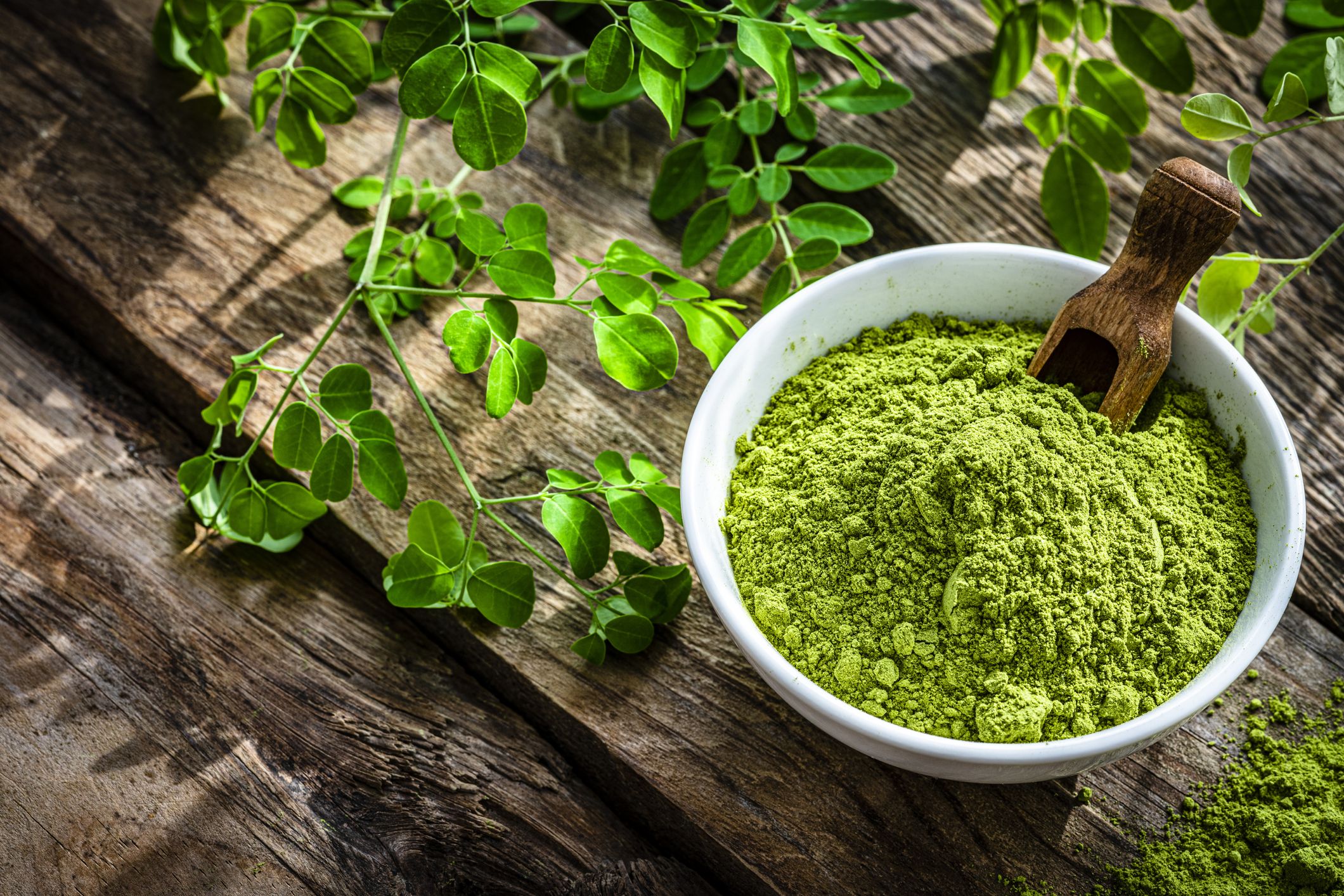
The potent herb moringa, scientifically known as Moringa oleifera, has several positive effects on human health. Elevated iron levels encourage healthy hair production by improving the body’s capacity to provide more oxygen to the hair follicles. Products containing moringa enhance blood circulation, vital for well-oxygenated hair follicles. The combination of vitamins A, B, and E fortifies hair follicles, encouraging robust hair growth. The moisturising and shine-enhancing properties of moringa also help to keep the scalp from drying out and peeling. Improving the look and feel of dry hair also moisturises it. The antioxidants in moringa enhance hair’s structure and shield it from harmful environmental factors like UV radiation. There are many methods to include moringa into your hair care routine. Some examples include a hot oil treatment, a homemade hair mask, boosted conditioners or moisturisers, or even oral capsules. If you want your hair to stay healthy and gorgeous, include moringa.
Conclusion
Herbs are an effective and all-natural way to care for your hair growth since they include the nutrients it needs to grow and stay healthy. Explore how herbs like Lavender, Hibiscus, and Rosemary can transform your hair care regimen and growth. The hair requires these natural ingredients to grow and thrive; you can find them in traditional medicine and modern hair care products. Always do a patch test before using a new substance on your skin, as people’s reactions to herbs might vary. See a doctor or herbalist for further personalised advice if unsure. Taking care of our hair naturally is a great way to indulge ourselves while connecting with nature. More important than looking good is having fun. We demonstrate reverence for Mother Earth and her abundant wealth by including herbal medicines in our hair care routines.

